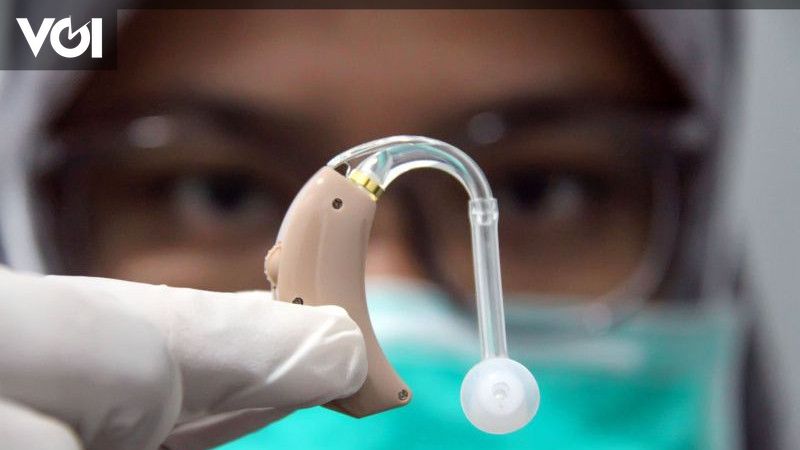



Deaf and hearing clubbers in Shanghai came together for a unique club night called 'BassBath'. The event aimed to break down barriers between the deaf and hearing communities through play and body language. Organized by a culture-bridging group, the party featured sign language artists, deaf professional dancers, and DJs playing tracks with catchy rhythms and bass beats. This event provided an opportunity for deaf and hearing individuals to understand each other's culture and make deep connections. While such spaces for nightlife and cultural events have been built by deaf communities around the world, they are still rare in China. The 'BassBath' club night in Shanghai showcased the power of inclusivity and the joy of music in bringing people together [96075e9c].
Deaf people, including Susan (not her real name), often fail to get justice due to communication barriers with relevant authorities. Susan, who developed hearing impairment at the age of four, faced challenges in accessing services and employment due to a lack of sign language interpreters. Cases of sexual and gender-based violence (SGBV) among the deaf and mentally challenged often go unreported, especially in rural and slum areas, due to a lack of sign language experts. The deaf are at risk of SGBV as they cannot make noise to raise alarm or fight back, and the lack of interpreters makes it difficult for them to describe offenders. The Kisumu Medical and Education Trust (KMET) and Elite Deaf organization organized a paralegal training to create awareness and provide support for SGBV cases among the deaf and mentally challenged. The training aimed to address gaps in legal assistance and psychosocial support for persons with disabilities (PWDs). The need for more sign language interpreters in rural areas and the documentation of cases were emphasized [8636f810].
Charities and campaigners representing the interests of the Deaf community have accused the U.K. National Health Service (NHS) of failing to provide key health-related information in an accessible format, jeopardizing the safety, well-being, and human rights of patients. The controversy relates to the U.K. government legislation known as the Accessible Information Standard, which sets out provisions and recommendations on how NHS providers can accommodate the communication needs of patients with disabilities. NHS England was due to publish an update to the 2016 standard last year, but the publication has been delayed, leading to an inequitable patient experience for deaf individuals. Deaf individuals have reported struggles during NHS appointments, including a lack of accessible information, reliance on family members for communication, uncertainty about the presence of sign language interpreters, and the inability to rely on written English. Charities and campaigners are urging NHS England to expedite the publication of the updated standard. The lack of access to healthcare for deaf individuals is described as a hidden national scandal, with people missing life-changing diagnoses and treatment information, facing negative attitudes and behaviors from health staff, and forfeiting their rights to privacy surrounding their health. The NHS emphasizes that all NHS services have a legal duty to provide clear and appropriate methods of communication to ensure that patients can fully understand their treatment and care [8636f810].
The Supreme Court (SC) of the Philippines has formed a committee to draft the first-ever rules on Filipino sign language, in line with the State policy to promote equal access to justice for persons with disabilities. The committee is aligned with Republic Act (RA) 11106, or the Filipino Sign Language Act, which mandates the Judiciary to ensure equal access to justice for the deaf and facilitate their participation in legal proceedings. The technical working group, chaired by Associate Justice Japar B. Dimaampao, held its inaugural meeting on May 27, 2024, at the Supreme Court Session Hall to refine and enhance the proposed rules. Associate Justice Jose Midas P. Marquez attended the meeting as the TWG's Vice chairperson [e36d2505].
The Ministry of Law and Human Rights expressed concern over cases of UTBK participants with hearing impairments being asked to remove their hearing aids during the exam at the University of Indonesia (UI). Naufal Athallah, a student with a disability, had his hearing aid removed during the exam. The Ministry plans to communicate with the Ministry of Education and Culture to prevent similar incidents in the future. The Ministry of Law and Human Rights regrets the incident and believes that the removal of the hearing aid is not in line with the government's commitment to human rights for people with disabilities. Indonesia is a participant in the Convention on the Rights of Persons with Disabilities and aims to implement an inclusive education system. The use of hearing aids is seen as limiting access for deaf people to receive equal and inclusive educational rights. The government has made efforts to increase the fulfillment of human rights for persons with disabilities, but there are still technical challenges and a lack of understanding regarding the rights of persons with disabilities. The Ministry emphasizes the importance of intensifying human rights dissemination and awareness about inclusive education and the rights of persons with disabilities in the world of education. Collaboration is being built with high school students in Jakarta to foster human rights awareness from an early age [20f94349].